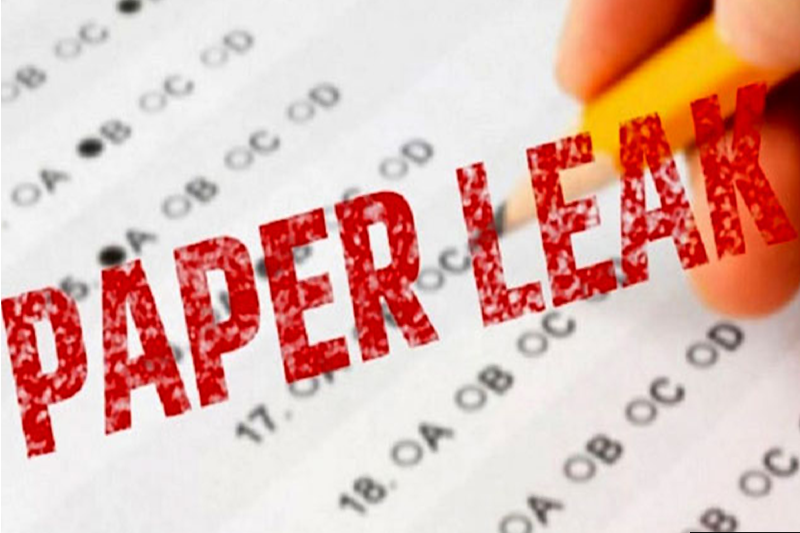
Decoding India’s Anti-Paper Leak Law: Offences, Punishments, and Its Impact on Public Examinations
The integrity of public examinations in India has been under severe scrutiny in recent years due to recurring reports of paper leaks and malpractice. The cancellation of the UGC-NET 2024 exam and the controversies surrounding NEET and NEET-PG highlighted the urgent need for a strong legal framework. In response, the Union government has brought the Public Examinations (Prevention of Unfair Means) Act, 2024—popularly known as the anti-paper leak law—into effect on June 21, 2024.
This law aims to protect the sanctity of national-level examinations and to hold accountable not just individual offenders but also organized groups and institutions that exploit the system for monetary or fraudulent gains.
Why the Anti-Paper Leak Law Was Needed
On June 19, 2024, the Union Education Ministry cancelled the UGC-NET examination, conducted just a day earlier across 317 cities with over 1.1 million candidates. The cancellation was prompted by suspected breaches of exam integrity, and the matter was referred to the Central Bureau of Investigation (CBI).
This was not an isolated incident. The controversy came amid allegations of irregularities in the NEET-UG medical entrance exam, and even the NEET-PG exam scheduled for June 23 had to be postponed as a precautionary step. With the National Testing Agency (NTA) serving as the conducting body for multiple exams, trust in the system was at stake.
The cancellation of UGC-NET became the first national-level examination scrapped after the anti-paper leak law came into force, underscoring the law’s immediate relevance.
An Overview of the Public Examinations (Prevention of Unfair Means) Act, 2024
The legislation was first introduced in the Lok Sabha on February 5, 2024. It was cleared by the Lok Sabha on February 6, the Rajya Sabha on February 9, and received Presidential assent from Droupadi Murmu later that month.
The law covers a wide range of competitive examinations conducted by:
- Union Public Service Commission (UPSC)
- Staff Selection Commission (SSC)
- Railway Recruitment Board (RRB)
- National Testing Agency (NTA)
- Institute of Banking Personnel Selection (IBPS)
- Union government departments and affiliated offices
Its core objective is to curb dishonest methods and unfair practices in examinations that affect the careers of millions of aspirants every year.
Offences Under the Anti-Paper Leak Law
The Act comprehensively defines what constitutes an offence during public examinations. The following practices have been criminalized:
- Leaking or gaining unauthorized access to question papers or answer keys.
- Providing assistance to candidates inside the exam hall.
- Manipulating computer networks, databases, or documents used in shortlisting or merit list preparation.
- Conducting fake examinations for fraudulent or monetary gain.
- Issuing counterfeit admit cards or offer letters.
- Premature disclosure of confidential examination information.
- Allowing unauthorized persons into examination centres.
The law also places restrictions on service providers, preventing them from relocating exam centres without prior approval of the examination authority.
Punishments Prescribed Under the Act
The law lays down strict punishments to deter offenders:
- For Individuals:
- Imprisonment of 3 to 5 years.
- Fines up to ₹10 lakh.
- For Service Providers:
- Defined as organizations providing computer resources or logistical support to examination authorities.
- Fines up to ₹1 crore for violations.
- For Organized Crimes:
- Activities by individuals, groups, or institutions conducted for wrongful gain.
- Imprisonment of 5 to 10 years.
- Minimum fine of ₹1 crore.
- Seizure of institutional property and liability to bear proportionate costs of re-conducting examinations.
All offences under the law are cognisable, non-bailable, and non-compoundable, leaving little room for offenders to escape accountability.
Investigation Framework
Investigations under the anti-paper leak law are to be conducted by senior police officials, specifically officers not below the rank of Deputy Superintendent of Police (DSP) or Assistant Commissioner of Police (ACP).
Additionally, the central government holds the power to transfer cases to central investigative agencies, such as the CBI, depending on the scale and sensitivity of the offence.
The Broader Implications for Students and Institutions
The introduction of this law is expected to bring much-needed transparency and accountability in India’s public examination system. For millions of students preparing for competitive exams like UPSC, NEET, SSC, and NET, the law promises a more level playing field by cracking down on leak mafias and fraudulent networks.
At the same time, institutions and service providers are now under strict legal scrutiny. From digital security to logistical arrangements, they will be held accountable for any lapse that could compromise examination integrity.
Challenges Ahead
While the law is strong on paper, its success will depend on implementation and enforcement. Ensuring coordination between examination authorities, technology partners, and law enforcement agencies will be key. Moreover, the judicial system will need to handle cases swiftly to reinforce deterrence.
Another challenge lies in preventing organized exam mafias, which often operate across states and exploit digital loopholes. Robust monitoring and advanced cybersecurity measures must complement the legal framework.
Conclusion
The Public Examinations (Prevention of Unfair Means) Act, 2024 marks a turning point in India’s efforts to restore faith in its examination system. By criminalizing unfair means and introducing stringent punishments, the government has sent a clear message: malpractices in public exams will not be tolerated.
With UGC-NET 2024 becoming the first casualty under this law and NEET controversies still unfolding, its enforcement will be closely watched by students, parents, and educators alike. If implemented effectively, the anti-paper leak law could safeguard the future of millions of aspirants and uphold the sanctity of one of the most critical pillars of India’s education and recruitment system.



